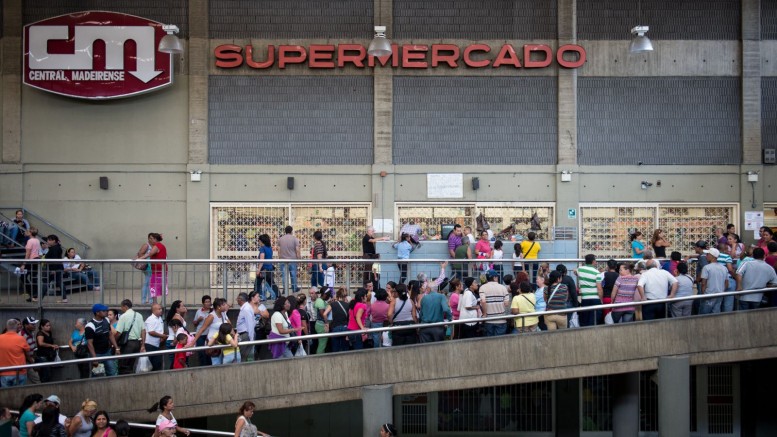During the presidential campaign, a decades-old video resurfaced of Bernie Sanders praising food lines in authoritarian countries. “It’s funny, sometimes American journalists talk about how bad a country is, that people are lining up for food. That’s a good thing,” Sanders argued. “In other countries, people don’t line up for food; the rich get the food and the poor starve to death.”
Try telling that to the people of Venezuela, Bernie.
According to Venezuela’s Living Conditions Survey, nearly 75% of the population lost an average of 19 pounds in the year 2016 as a result of malnutrition brought about by an economic crisis.
The Central University of Venezuela, the Andres Bello Catholic University, the Simon Bolivar University and several other non-governmental organizations conducted the survey, the official name of which is ENCOVI. But the staggering statistic on weight loss and malnutrition wasn’t the only thing that the survey revealed.
According to ENCOVI, the Venezuelans are not consuming the required number of calories (2000) each day. Those who are living in extreme poverty also indicated that they lost more than 20 pounds, which is slightly higher than the country’s average.
The survey continued to produce negative results. For instance, most Venezuelans substituted red and white meat with vegetables. 82.2% of Venezuelans consider themselves to be poor because of their incomes. 93% of Venezuelans don’t have enough money to buy the amount of food that they need. Just below 80% of the people said they eat breakfast in the morning, and 32% only eat two meals a day. (RELATED: You won’t believe how many Venezuelans are forced to search through dumpsters for food).
Venezuela, a country whose economy is run by the federal government, is currently in the middle of an economic crisis. Food and medicine that we can easily access in the United States are becoming more and more difficult to get in Venezuela. According to the United Nation’s Economic Commission for Latin America and the Caribbean, Venezuela’s GDP will decrease by 4% in 2017. In addition, the International Monetary Fund predicts that inflation will rise by a whopping 1,600%.
In 2015, NPR gave us a more in-depth look at just how difficult life really is for everyday citizens of Venezuela. Anny Valero, a typical housewife and mother of three, explained that people are only allowed to visit supermarkets two times each week. To ensure that no one shops more frequently than that, authorities keep track of their ID card numbers, the fear being that people will buy more food than they need and then sell it to others on the black market.
Valero said that on shopping days, she says goodbye to her two daughters and leaves them at home with the door locked, given the possibility that she could potentially spend the entire day waiting in a food line. She takes her 6-month-old son with her along with her husband, who will be able to protect her from thieves should someone try to steal her grocery bags.
Upon checkout, the clerk tells Valero that she is only allowed to take home two of the sardine cans instead of the three that she originally took from the shelves. She is asked to show her baby’s birth certificate as well to prove that the baby is in fact hers and that the diapers really are a necessary purchase. For the next few days, Anny and her family will be forced to survive on only the sardines, some rice and pasta.
This is the socialist utopia that the democrats in our own country seem to be attracted to. The only problem is that more government intervention in the economy and more redistribution of wealth don’t spur economic growth; they hinder it. (RELATED: What can we learn from Venezuela?)
Sources:


